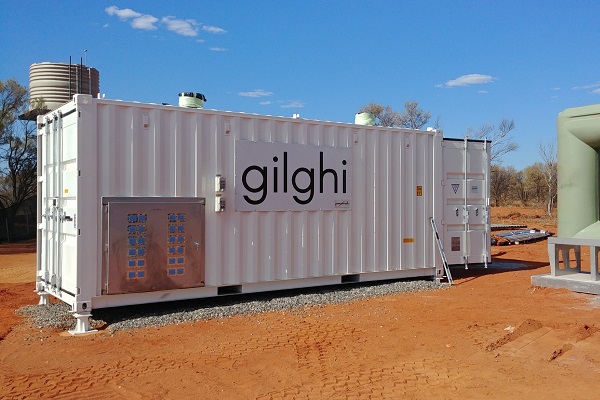A winning formula for remote communities
Aurecon’s breakthrough water security innovation for remote communities wins global engineering award.
An Indigenous community in the Northern Territory now has access to affordable and continuous potable water thanks to an innovative off-grid, modular water treatment plant that has won the 2020 Institution of Civil Engineers (ICE) Chris Binnie Award for Sustainable Water Management.
Project Gilghi was developed by international engineering, design and advisory company Aurecon and Hunter based electrical engineering company Ampcontrol. It is a breakthrough solar powered water treatment plant that aims to provide safe drinking water to Indigenous and remote communities across Australia.
ADVERTISEMENT
The Chris Binnie Award recognises and celebrates outstanding civil engineering achievement in the field of sustainable water management and how it has benefited society. Aurecon Chief Design Officer John McGuire says he was thrilled to see the project receiving this prestigious international recognition.
“Project Gilghi addresses a national priority – water security for remote Indigenous communities. The solution not only meets the challenge by utilising innovative technology, it also provides affordable potable water to a remote community in an environmentally sustainable way,” John says.
“It’s a highly innovative evolution of technologies that can significantly contribute to reaching the United Nations Sustainable Development Goal number six, which aims to ensure access to clean water and sanitation for all by 2030.”
ICE Water Panel member and Exeter University visiting Professor Chris Binnie was highly impressed by Gilghi’s value creation and its applicability to a bigger sustainability picture.
“Gilghi is a genuinely new project with a novel technological approach; the integration of the work of water process engineering and electrical engineering and solar panels was particularly pleasing. The solution provides a reliable and potable supply of water in a sustainable manner that does not increase CO2 emission,” Chris says.
Gilghi was deployed in the community of Gillen Bore, which until 2019 relied on the continued transport (150km round trip from Alice Springs) of potable water due to the high salinity, hardness and low pH levels found in existing bore water.
The project was enabled by the Northern Territory Department of Local Government, Housing and Community Development with a $70,000 Municipal and Essential Services Special Purposes Grant and supported by the client Ingkerreke Outstations Resource Services.
Gilghi can take feed water from a variety of sources, including groundwater, rivers, lakes and oceans and turns it into drinkable water, compliant with Australian Drinking Water Guidelines. For remote communities such as Gillen Bore, Gilghi is designed to offer a complete solution that is operated and maintained by the community.
Ordinarily, water treatment systems run continuously, but Gilghi makes smart use of available solar power to run the plant and charge the batteries during the day. This includes the development of a specialist electrical control system using multiple power sources to reliably purify the water in batches, before feeding the clean water into the community’s reticulation system.
Aurecon design director for water and wastewater treatment Julian Briggs says,“We wanted to challenge traditional engineering design. Typically, we design the treatment process first and then think about the energy design, but for Gilghi, we came at it from both angles so that we could use a sustainable power source to challenge the concept of needing to go to the grid or rely on diesel-generated power.”
Given the modular design and rapid plug-and-play capability of the Gilghi solution, the unit can be extended or modified to meet larger supply requirements in the future with the same efficiency and cost effectiveness.
“With the success of Gilghi, there are opportunities to support other remote communities in Australia and a range of developing nations around the globe where access to the grid or water sanitation is limited or non-existent,” Julian says.
“As we observe impacts of climate change around the world, Gilghi offers communities a transition to an alternative water source where local dams or water tanks have been or are at risk of being exhausted.”
Gilghi recently won a Good Design Australia Award for Social Impact and the Infrastructure Project Innovation category at the 2020 Australian Water Association NSW Awards. The project is also a 2020 Australian Engineering Excellence Awards (AEEA) Newcastle Division winner and will compete for the national Sir William Hudson Award.
-
ADVERTISEMENT
-
ADVERTISEMENT


